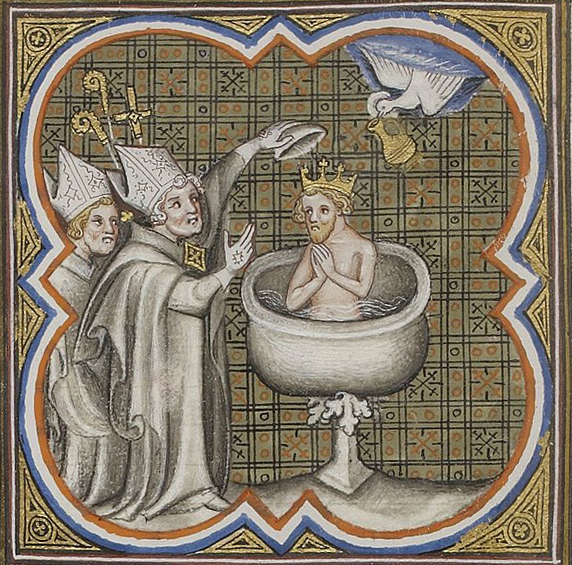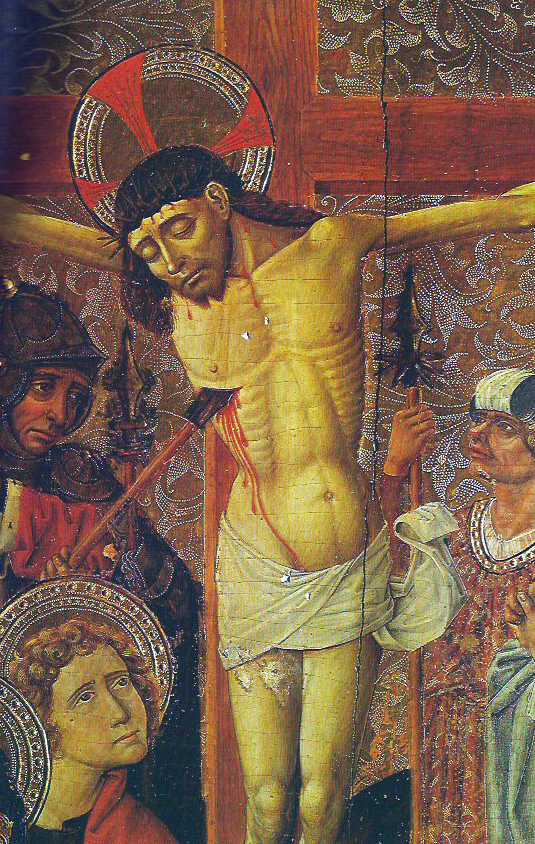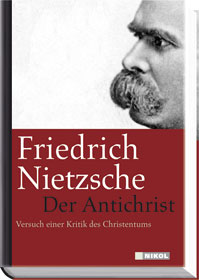
Editors’ note: To contextualise these translations of Karlheinz Deschner’s encyclopaedic history of the Church in 10-volumes, Kriminalgeschichte des Christentums, read the abridged translation of Volume I.
Everything a person needs to know is contained in the Bible
Augustine’s intellectual achievements—which are of a theological nature—have been always overrated. With the exception of certain psychological observations, he always wrote under the inspiration of others, and limited himself to ‘converting into a personal experience what he grasped when meditating on the thoughts of others’ (H. Holl). ‘Never in his life did he have the courage to think autonomously’. A historian so enlightening and worthy of being read as H. Dannenbauer is tempted to apply to Augustine the old sentence with which Goethe referred to Lavater: ‘Strict truth was not his. He lied to himself and others’.
Augustine felt genuine addiction for authority. He always had to find shelter under something, to adhere to something: to the Manicheans, to academic scepticism, to neo-Platonism and, finally, to Christianity. In this regard, he only believed in the Bible by virtue of the authority of the Church (which based its authority on the Bible). The authority of the Bible is in turn a guarantee, Augustine thinks, of the truth. What it affirms is true; it is completely infallible. ‘Moreover, Scripture sometimes appears as a criterion of profane knowledge. Of the historical narratives, we should only believe as long as it does not contradict the affirmations of Scripture’.
Already in the time of Augustine both the wealth of knowledge and the quality of education had declined. However, some classical training still counted to the point that, with it, it was possible to make a career in the Roman Empire and get access the high and even the supreme dignities.
The bishop of Hippo had no notion of Hebrew. Also, his knowledge of Greek was flimsy. He could hardly translate Greek texts. He, a rhetor and for several years a professor at several high schools, barely read the Greek Bible.
To the classics, including Plato and Plotinus to the extent that he knew them, and to the Greek Patristics, he read them in a Latin version. And it is likely that most of his quotations were second hand. Only very few come from direct sources: Livius, Florus, Eutropius, perhaps Josephus, but above all Marcus Terentius Varro, the great scholar of ancient Rome, whose Antiquitates rerum humanarum and divinarum (Antiquities of Human and Divine Things) is his only source of information regarding the pagan deities.
Augustine’s scientific and natural training was very weak. Certainly he did not think it necessary to admit the existence of pygmies, of cynocephali, or of people who protected themselves from the sun under their flat feet. He firmly believed, of course, that the diamond could only be broken with the blood of a goat and that the wind from Cappadocia impregnated the mares. He also believed firmly in purgatory. Moreover, he was the theologian who endowed this idea dogmatic entity.
He also believed firmly in hell, being himself the one who depicts it for us as real physical fire, and who teaches that the intensity of heat is governed by the gravity of sins. On the other hand, he does not believe that the Earth is spherical (nulla ratione credendum est, ‘there is no reason to believe that’) even if it had been demonstrated centuries ago.
The natural sciences, according to Augustine, are opinions. The investigation of the world is at the most investigation of a world of appearances. This applies to the theatre as well as to natural science or magic—eagerness for shows, curiosity, that’s all.
Profane knowledge and culture do not have any value for themselves. They only acquire value in the service of faith and have no other purpose than to lead to holiness, to a deeper understanding of the Bible. Philosophy, that in his old age seemed to him ‘subtle charlatanism’ (garrulae argtiae), has no other value than mere help to interpret the ‘revelation’. Everything thus becomes a resource, an instrument for the understanding of Scripture. Otherwise science—any science—is alienation from God.
The curiosity, the eagerness to know always created suspicions in Christianity. Tertullian had already fought it with crudeness and Augustine, more fiercely, attacks almost systematically curiosity and the longing to know, which leads him to anathematize science.
Painting, music and sculpture are also superfluous. Medicine, architecture and agriculture deserve the same judgment, unless they are to be practiced professionally. This bishop saw in the Church the Schola Christi (Christ’s School) and all the sciences outside it were suspect. Ultimately, everything a person needs to know is in the Bible and what is not there is harmful.
 Instalment 129 of Deschner’s work, that recounts the brutalities committed by the first Christian king that ‘united’ the Franks, ends with these words: ‘As long as history is viewed in this way, as long as it remains outside of its moral valuation and the vast majority of historians continue to crawl before such hypertrophic beasts of universal history with respect, reverence and admiration… history will continue to unfold as it does’.
Instalment 129 of Deschner’s work, that recounts the brutalities committed by the first Christian king that ‘united’ the Franks, ends with these words: ‘As long as history is viewed in this way, as long as it remains outside of its moral valuation and the vast majority of historians continue to crawl before such hypertrophic beasts of universal history with respect, reverence and admiration… history will continue to unfold as it does’.




